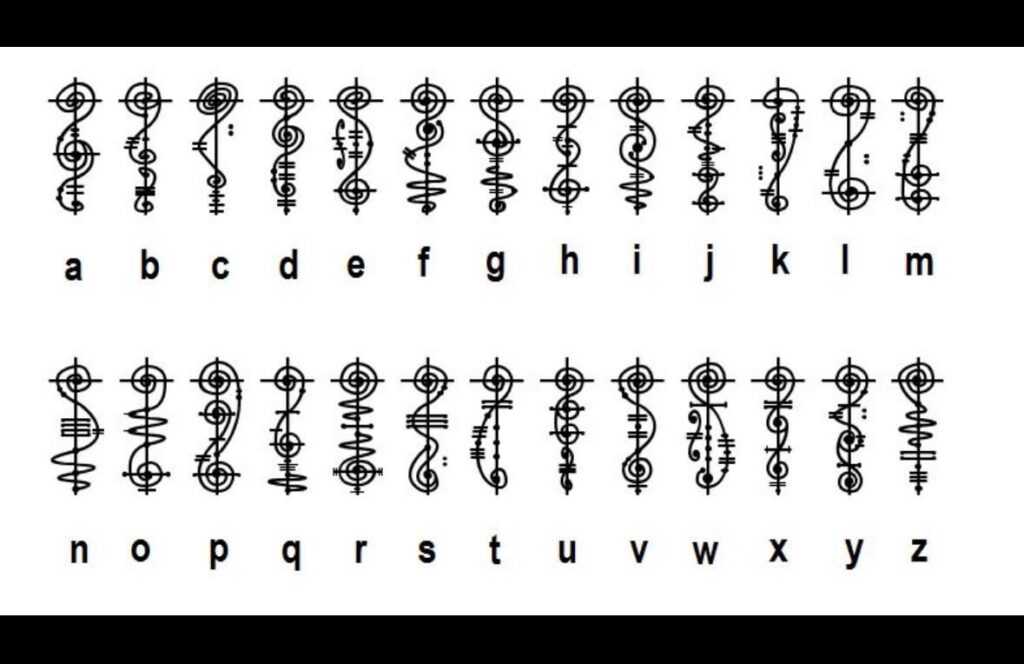Do You Speak Vulcan?
Exploring the Linguistic Complexity of the Vulcan Language
The Vulcan language, featured throughout the Star Trek universe, is a fully realized constructed language (or conlang) developed to reflect the logic, discipline, and cultural heritage of the Vulcan people. While many fans are familiar with the guttural intensity of Klingon (also created by linguist Marc Okrand), the Vulcan language possesses a subtler elegance… one that mirrors the intellectual, philosophical, and emotionally restrained society of its speakers.
The Vulcan language first appeared in Star Trek II: The Wrath of Khan (1982), with linguist Marc Okrand crafting a brief exchange of Vulcan dialogue. While Klingon became the more publicly known language due to its aggressive phonology and expanded use, Okrand and other contributors continued to refine Vulcan, eventually leading to the creation of Golic Vulcan, the most prominent dialect in fan and canon use.
Over time, various fan linguists and scholars expanded the Vulcan linguistic system, resulting in more than 100 dialectal variants, each with slight phonetic or structural distinctions, used across different regions or periods in Vulcan history.
Golic Vulcan: The Language of Logic
The Golic Vulcan dialect is the most studied and standardized version of Vulcan. Its grammar and syntax reflect the Vulcan emphasis on precision and efficiency. Structurally, it is more phonetically logical than English, with clear pronunciation rules and consistent sound-symbol correspondence. It is categorized as a syntactic language, meaning that sentence structure and word order are key to determining nuance and meaning—more so than inflection or stress.

Phonology and Orthography
The Vulcan alphabet consists of 27 unique characters, each representing a distinct consonant or vowel sound.
There are five core vowels, which can combine into diphthongs, allowing for fluid pronunciation and variation.
Every sound is represented by a unique symbol, and the script often resembles mathematical or abstract symbols, reinforcing the Vulcan preference for orderly representation.
Word stress follows set patterns: in two-syllable words, stress typically falls on the first syllable, while in longer words, it most often falls on the second syllable.
Grammar and Syntax
Vulcan syntax adheres to a subject–object–verb (SOV) structure, though verb placement can shift for emphasis, especially in poetic, rhetorical, or ceremonial contexts. The flexibility of word order supports the language’s contextual economy. Vulcans avoid redundancy and verbosity unless clarity or ritual demands it.
Syntactic Details
Verb-first emphasis: In typical constructions, the verb appears at the end of the sentence, following the subject and object. For example:
T’nash-veh kre thorsha → “I [subject] book [object] read [verb].”
Verb-noun pairs: Many Vulcan words are constructed as verb–noun pairs, where the meaning of one implies the other. Knowing the verb “to meditate” may reveal the noun “meditation” with a predictable root or affix.
Prefixes and suffixes: Vulcan words are often morphemically built. Prefixes (often serving the role of prepositions) and suffixes modify root meanings with great precision.
Compound words: Complex ideas are formed by joining basic roots with a hyphen-like marker called a pakh (–), denoting conceptual linkage.
Contextual clarity: Vulcans favor conciseness. Pronouns or repeated references are omitted when already understood from context, unless used for pedagogical or formal purposes.
Tense simplicity: Verbs do not change form based on the subject. There is one universal form per tense for all persons, singular and plural.
- For example, the verb prefix “sha–” consistently marks verbal constructions, contributing to structural clarity.
The Vulcan approach to language mirrors their cultural ethos of restraint, logic, and precision. Communication is seen as a tool for conveying ideas with the fewest possible ambiguities, and emotional expression is often downplayed or channeled through ritualized phrases or symbolic metaphor.
- Excessive language is viewed as a distraction. Vulcans prefer the “just enough” principle: say only what is necessary.
- Vulcan society discourages emotional outbursts, and as a result, invective forms or “vulgar” words are rare and disfavored. Most have fallen into disuse and are studied only in historical or anthropological contexts.
- In educational or ceremonial settings, however, full grammatical structures are used. These occasions preserve the richness of the language and allow for more elaborate or poetic constructions.
The Art of Precision in Naming Vulcan language places great value on semantic precision. Names, titles, and terminology often carry layers of philosophical or scientific meaning. The act of naming something is treated as a form of classification—assigning its nature, context, and purpose. This is reflected in the language’s morphological structure, where words can be built to encode complex ideas within a single compound.

Much of the expansion of Vulcan as a language has come from fans and linguists outside of official Star Trek productions. Notable fan projects include Dorothy Jones Heydt’s Vulcan grammar and the work of the Vulcan Language Institute, which created “Golic Vulcan,” a more fully developed conlang based on canon material and fan extrapolation.
Notable Vulcan Words and Phrases
- Pon farr: Vulcan mating cycle
- Kah-if-farr: Marriage ceremony
- Kal-if-fee: Ritual challenge
- Plomik: A type of soup
- Ni var: Concept of duality or comparison
- “Peace and long life” / “Live long and prosper”: Standard Vulcan greetings
Etymology and Linguistic Notes
Many Vulcan words were invented for dramatic effect, with some borrowing from constructed linguistic roots or being inspired by the needs of the script.
A Language Worthy of Logic
Vulcan’s linguistic features aren’t just utilitarian, they’re reflective of the Vulcan worldview. The structure and economy of the language demonstrate a deep alignment with:
- Logic over emotion
- Precision over ambiguity
- Discipline over expression
These values are encoded not just in what Vulcans say—but in how they say it.
More than a fictional tongue, Vulcan is a tribute to linguistic craftsmanship. It embodies the values of its fictional speakers while offering real-world fans a chance to explore logic through language. With its structured phonology, contextual grammar, and philosophical depth, the Vulcan language stands as a prime example of how fictional languages can transcend storytelling and become compelling, intellectual systems in their own right.
Vulcan is more than a made-up language; it is a model of how culture and language intertwine. With its logical structure, symbolic script, and philosophical integrity, Vulcan remains a benchmark for constructed languages in fiction. Whether you aim to study it academically, speak it with fellow enthusiasts, or simply admire its design, Vulcan offers a remarkable example of linguistic world-building at its finest.
So, do you speak Klingon?
Do you want to?
